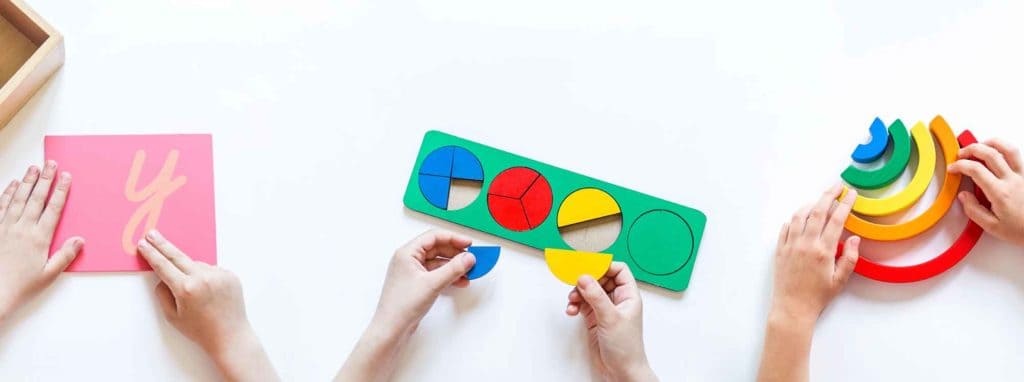What is Montessori education?
The Montessori education is a method developed by Italian physician Maria Montessori. Emphasizing independence, it views children as naturally eager for knowledge and capable of initiating learning in a sufficiently supportive and well-prepared learning environment. It discourages some conventional measures of achievement, such as grades and tests.
Montessori environment
Montessori classrooms are immediately recognizable. You will see children working independently and in groups, often with specially designed learning materials; deeply engaged in their work; and respectful of themselves and their surroundings.
It should be a prepared environment: tidy, pleasing in appearance, simple and real, where each element exists for a reason in order to help in the development of the child. A Montessori classroom integrates children of mixed ages that are grouped in periods of 3 years. This promotes socialization, respect and solidarity among them naturally. The prepared environment offers the child opportunities to commit to interesting and freely chosen work, which brings out long periods of concentration that should not be interrupted.
The Montessori Method
The Montessori Method fosters rigorous, self-motivated growth for children and adolescents in all areas of their development—cognitive, emotional, social, and physical.
Children work with concrete materials that were scientifically designed, which provide them with the keys to explore our world and develop basic cognitive abilities. The materials are designed to allow the child to recognize the error by him/herself and become responsible for his/her own learning.
The adult is an observer and a guide: he/she helps and stimulates the child with all his/her effort. This allows children to act, want and think by themselves, and helps them to develop inner discipline and confidence.
